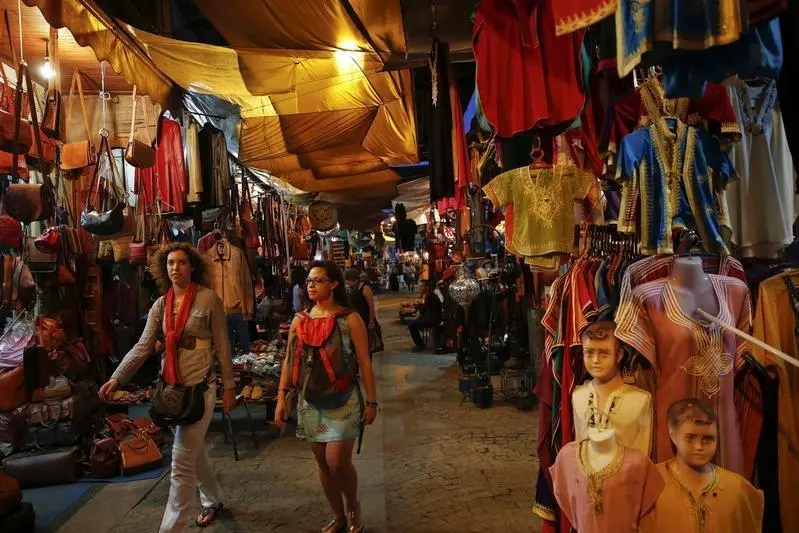PHOTO
RABAT - Morocco's central bank left its benchmark interest rate unchanged at 2.25 percent on Tuesday and said it sees no need to intervene in the currency market, with the dirham's value stabilising in a more flexible exchange-rate system.
Inflation, driven mainly by food prices, is expected to reach 2.4 percent in 2018 before easing to 1.4 percent in 2019, the bank, known as Bank Al-Maghrib, said in a statement.
Economic growth was forecast at 3.6 percent in 2018, based on expectations of a cereals harvest of 9.82 million tonnes this year. Gross domestic product growth is expected to slow to 3.1 percent in 2019.
"Based on these assessments, particularly those of medium-term inflation and growth prospects, the Board considered that the current level of the key rate at 2.25 percent remains appropriate and decided to keep it unchanged," the bank said in a statement.
Central bank Governor Abdellatif Jouahri also said no intervention in the currency market was necessary as pressure on the dirham had eased after a more flexible foreign exchange system was created in January.
"We have had positive results so far," Jouahri told reporters, adding that the interbank market was functioning well.
Morocco's new exchange-rate system lets the dirham trade against hard currencies in a 5 percent band, 2.5 percent to either side. It had traded 0.3 percent either side.
The central bank and the International Monetary Fund say the country's foreign reserves allow for a smoother transition to a more flexible exchange system.
The dirham is traded in a currency basket in which the euro has a weight of 60 percent and the dollar 40 percent.
The current account deficit would hover around 4.1 percent of GDP at the end of the year and 3.6 percent in 2019.
Foreign exchange reserves were projected at 255.4 billion dirhams ($26.72 billion) by the end of 2018, enough to cover almost six months of import needs.
The budget deficit is expected at about 3.4 percent of GDP in 2018 and 3.3 percent in 2019.
Jouahri also said it was too early to specify the impact of a call for a consumer boycott against three of the country's top brands for lack of data, but the bank was following the issue closely.
The campaign, begun on April 20, has forced Centrale-Danone, part of France's Danone, to cut production and lay off workers.
It has also targeted Afriquia fuel stations owned by billionaire minister Aziz Akhanouch and Sidi Ali mineral water brand.
Higher oil prices and international conflicts may have an immediate impact on Morocco's finances especially in terms of borrowing costs, he said.
He added that US protectionism adds uncertainty and volatility to international markets.
"Once a state engages in a trade war, currency war ensues," Jouahri said.
($1 = 9.5581 Moroccan dirham)
(Reporting by Ahmed Eljechtimi, aditional reporting by Ulf Laessing, Tarek Amara and Aidan Lewis; editing by Larry King) ((ahmed.eljechtimi@thomsonreuters.com;))





















